Advancing ecology at the interface of theory and data
Although most of us are fundamentally empiricists, our approaches often have population models at their core, allowing rigorous links between theoretical concepts and the dynamics of field systems. As ecologists, we focus on the contemporary dynamics of populations and communities, though we are also increasingly interested in how rapid evolutionary change alters these dynamics.
Jonathan Levine
Jonathan Levine received his PhD in 2001 from UC Berkeley, where he studied the controls over plant invasions. He was subsequently a postdoctoral researcher at the NERC Center for Population Biology at Imperial College, Silwood Park, where he studied mathematical models of species coexistence. He was an Assistant Professor at UCLA, before moving in 2003 to UC Santa Barbara, where he served as Assistant, Associate, and Full Professor. In 2011, Jonathan was appointed Professor of Plant Ecology at ETH Zurich, where he served until moving to Princeton University in 2019. Jonathan’s research emphasizes the controls over species coexistence, plant migration and invasion, and how communities respond to climate change.
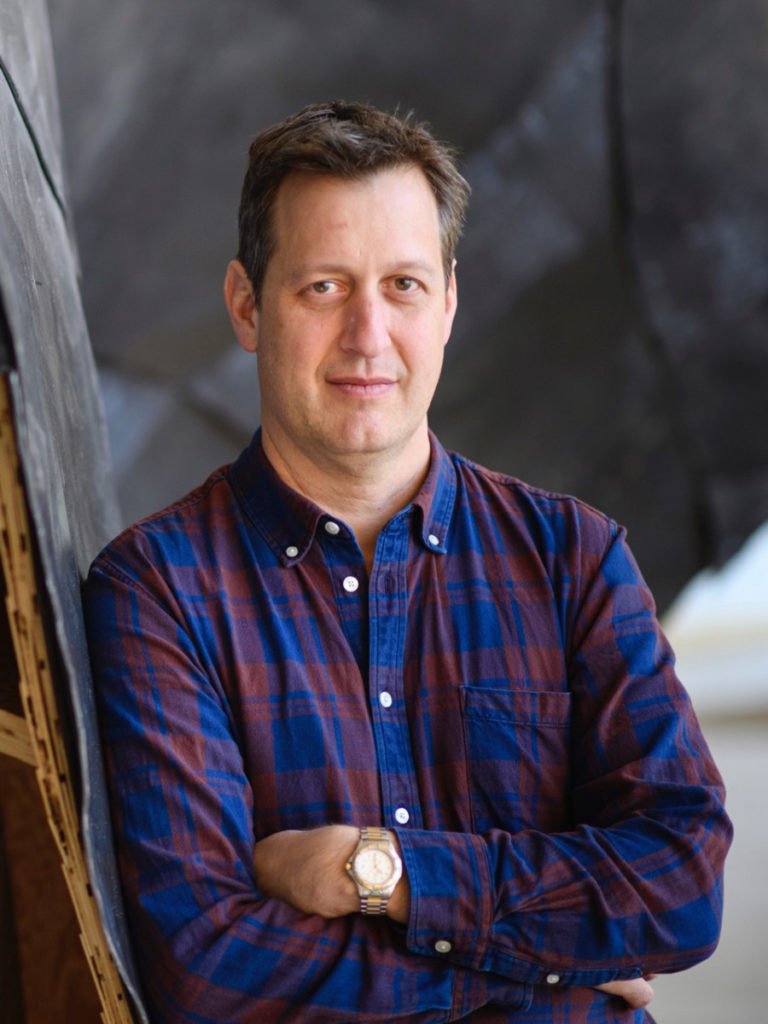
Lab Members
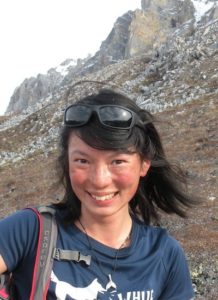
Ruby An
PhD Student
Area of Interest: How seasonality structures communities and the resilience of arctic tundra to global change.

Evelyn Beaury
Postdoctoral Researcher
Area of Interest: The impacts of global change on biodiversity, the ecology and management of invasive plants, spatial and macroecological models

Theo Gibbs
PhD Student
Area of Interest: How ecological communities assemble and stably coexist, using theoretical ecology and datasets from varied biological systems
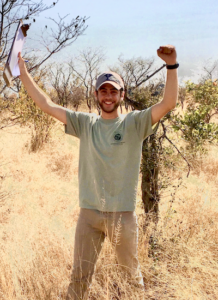
Zach Gold
PhD Student
Area of Interest: Plant community responses to climate change, disturbance ecology, community assembly, plant-pollinator relationships, species competition and coexistence.
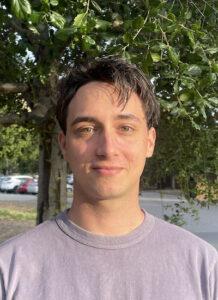
Jamie Leonard
PhD Student
Area of Interest: How rapid evolution and competition for mutualist partners affect species coexistence.

Jacob Levine
PhD Student
Areas of Interest: How inter- and intra-species interactions facilitate co-existence and community function, and how those interactions scale and are affected by perturbations such as climate change.
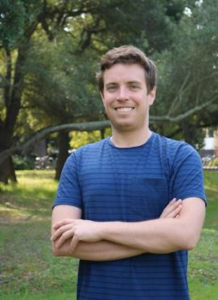
Jeffery Smith
Postdoctoral Researcher
Area of Interest: How climate change and land-use intensification affects biodiversity and species interactions.
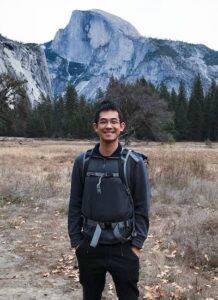
Chuliang Song
Postdoctoral Researcher
Area of Interest: Chuliang is a theoretical and computational community ecologist. His research interests include species coexistence, priority effects, and spatial patterns.
- Stephanie Yelenik, Ph.D. 2008, Scientist at USGS
- Erin Mordecai, Ph.D. 2012, Faculty at Stanford University
- Nicky Lustenhouwer, Ph.D. 2017, Postdoc at UC Santa Cruz
- Peter Adler 2003-2006; Faculty at Utah State University
- Janneke Hille Ris Lambers 2004-2006; Faculty at the University of Washington
- Margaret Mayfield 2005-2007; Faculty at the University of Queensland
- Louie Yang 2006-2008; Faculty at University of California, Davis
- Elizaveta Pachepsky 2006-2010; Private Sector
- Benjamin Gilbert 2008-2010; Faculty at the University of Toronto
- Jennifer Williams 2011-2012; Faculty at the University of British Columbia
- Nathan Kraft 2012; Faculty at the University of California, Los Angeles
- Oscar Godoy 2010-2013; Faculty at the University of Cadiz
- Jeff Diez 2011-2013; Faculty at University of California, Riverside
- Emily Moran 2012-2014; Faculty at University of California, Merced
- Monique De Jager 2013-2014; Postdoc at the University of Utrecht
- Serguei Saavedra 2015; Faculty at MIT
- Jake Alexander 2011-2016; Faculty at ETH Zurich (ERC Starting Grant)
- Martin Turcotte 2014-2016; Faculty at the University of Pittsburgh
- Jacob Usinowicz 2014-2019 Postdoc at the University of British Columbia
- Simon Hart 2012-2018; Faculty at the University of Queensland
- Andrew Letten 2018-2019; Faculty at the University of Queensland
- Sabine Güsewell 2012-2018; Statistician, Cantonal Hospital of St. Gallen
- Mariana Gliesch Silva, PhD 2020; PostDoc University of Amsterdam
- Christopher A. Johnson, 2015-2020; PostDoc University of Washington
- Tess Grainger, 2019-2020; PostDoc University of British Columbia
- Dylan McArthur-Waltz, 2020; Graduate Student, University of California, Davis
- Rachel Michaels, 2022
- Hannah Stouter, 2022; Research Technician, UCLA, Department of Ecology and Evolutionary Biology
- Phoebe Richardson, 2022; Research Technician, Howard Hughes Medical Institute, Harvard University
- Will Petry, 2021; Assistant Professor, Department of Plant and Microbial Biology, North Carolina State University
- Po-Ju Ke, 2021; Assistant Professor, Institute of Ecology and Evolutionary Biology, National Taiwan University
- Sebastian Block Munguia, 2022; Post Doc, Yale University
Research
The maintenance of species diversity
How to explain the wide diversity of species we see in nature is one of the central challenges in all of ecology. Which factors prevent the single best competitor or best handful of competitors from displacing all other species from communities?
Over the last decade, our work has explored individual mechanisms of species coexistence, including for example, temporal storage effects, where species coexist by specializing on different types of climate years. We have also explored the collective importance of species’ niche differences for coexistence, challenging “neutral” explanations for species diversity maintenance.
Ongoing work in this area asks how plant functional traits and phylogeny can be used to predict species’ niche differences and competitive ability. We are also exploring how intraspecific variation influences competitive outcomes via its effects on demography, community drift, and evolution. More specifically, we are evaluating the potential for rapid evolutionary changes in competing populations to influence coexistence. In the broadest sense, we are interested in the factors regulating the outcome of competition, including mechanisms that range from plant-nutrient to plant-pathogen interactions.
Hart, S.P., M.M. Turcotte, and J.M. Levine. 2019. The effects of rapid evolution on species coexistence. Proceedings of the National Academy of Sciences 116:2112-2117.
Levine, J.M., J. Bascompte, P.B. Adler, and S. Allesina. 2017. Beyond pairwise mechanisms of species coexistence in complex communities. Nature 546:56-64.
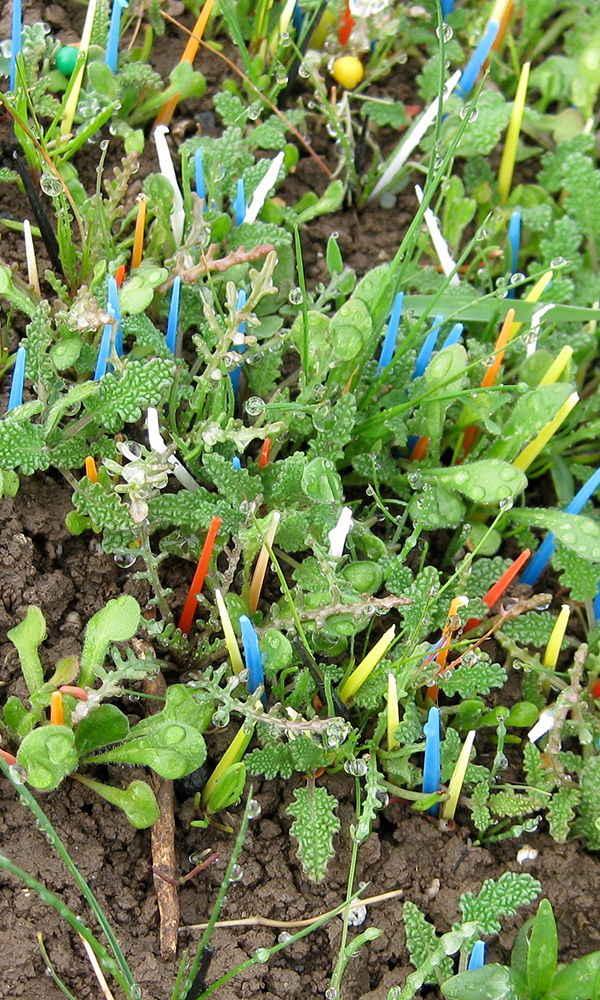
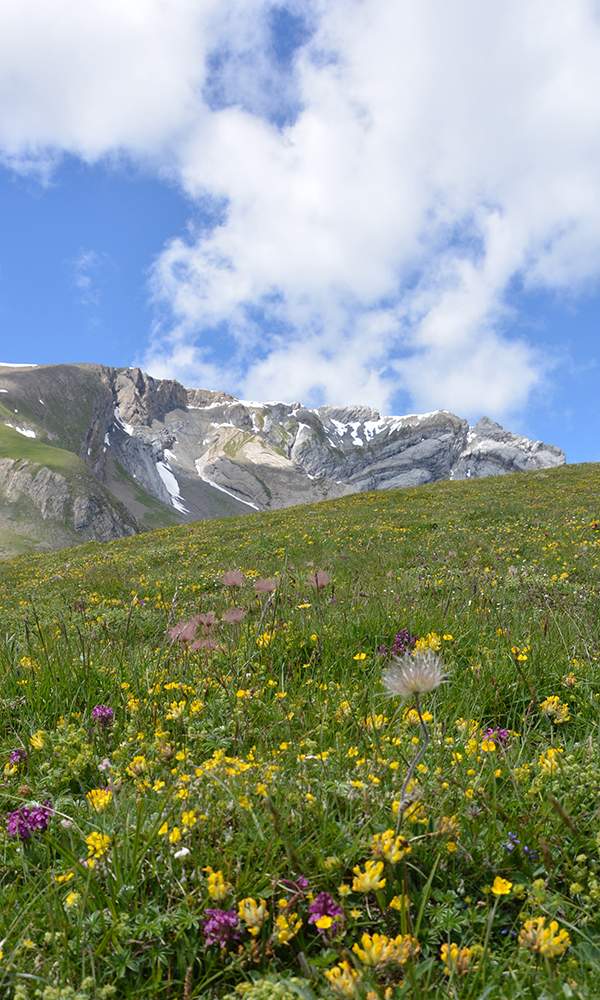
Plant community and ecosystem responses to climate change
Understanding how ecological communities respond to changing climate is an important goal for plant ecologists. Our work asks how species’ responses to climate depends on their interactions with competitors.
In past research, we have explored the effect of altered precipitation regimes on competition between invasive grasses and native California plants. This and other work explores how climate alters the interaction between species that co-occur today, yet some of the most dramatic impacts of altered competition are expected when climate change forces the interaction between species with no prior ecological history.
In an ongoing project in the Swiss Alps, we are exploring how novel competitors that migrate into communities with changing climate alter plant population persistence. A second emphasis of our climate change work concerns the role of early season events in controlling population and community dynamics. In work over the last decade, we have explored how the timing and temperature of the first rain storm in California’s Mediterranean climate, or the date of snowmelt in the Swiss Alps determine plant species’ phenology, demography, and coexistence.
Usinowicz, J. and J.M. Levine. 2018. Species persistence under climate change: a geographic scale coexistence problem. Ecology Letters 21:1589-1603.
Alexander, J.M., J.M. Diez, and J.M. Levine. 2015. Novel competitors shape species’ responses to climate change. Nature 525:515-518.
Controls over plant invasions
The spread and impact of plant invasions shed light on fascinating ecological processes with important implications for the management and conservation of natural areas.
Much of our ongoing work in this area uses models and experiments to explore the plant vital rates that contribute to population spread, and how these rates evolve in expanding populations. In a greenhouse experiment with Arabidopsis, we are evaluating how much faster invasions spread as a consequence of evolution during the spread process. Several projects are exploring the importance of genetic diversity and local adaptation for invasion along altitudinal and latitudinal gradients, and the invasion of new continents.
We are also exploring tradeoffs between plant vital rates important for spread (fecundity, time to maturity, dispersal), and where along those tradeoff curves plant populations spread the fastest. Finally, we are exploring the factors determining the outcome of competition between native and invasive species, with particular recent attention to the role of plant phenology. Much of this work uses plant invasions as a model system to predict how native populations will spread and evolve with climate change.
Alexander, J.A., and J.M. Levine. 2019. Earlier phenology of a nonnative plant increases impacts on native competitors. Proceedings of the National Academy of Sciences 116:6199-6204.
Williams, J.L., B.E Kendall, and J.M. Levine. 2016. Rapid evolution accelerates plant population spread in fragmented experimental landscapes. Science 353: 482-485.
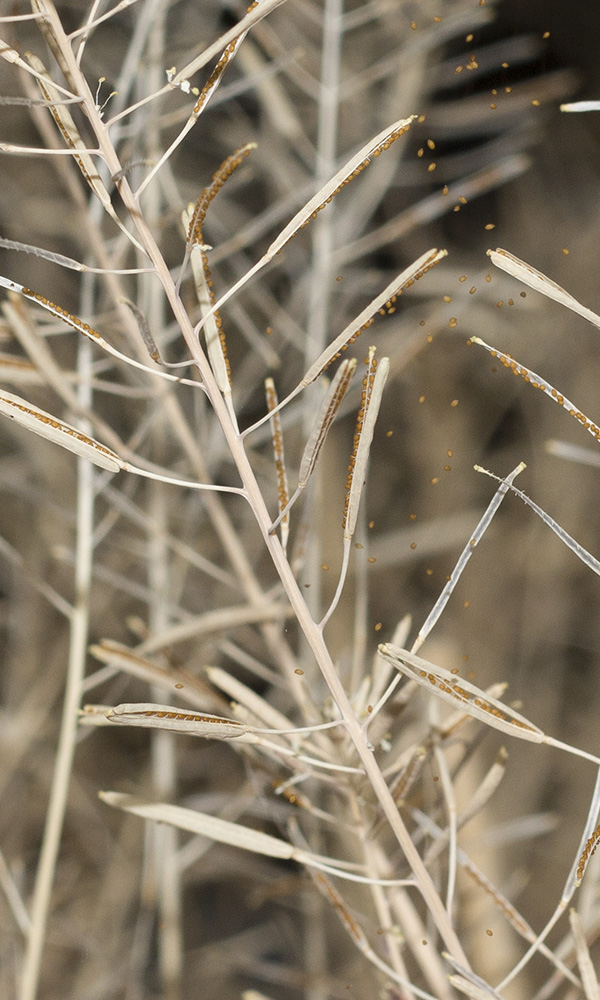
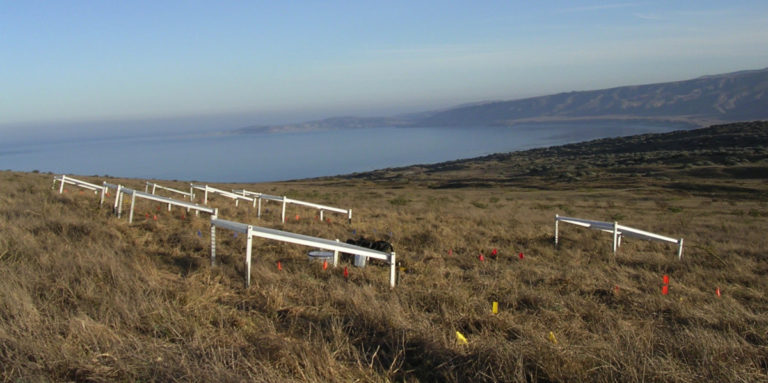
Courses
Advanced discussions of ecology, evolution, and behavior focus on 50 fundamental papers. Ecological topics include dynamics and structure of populations, communities, ecosystems, and conservation biology. Behavioral topics include instinct and learning, social behavior, physiological ecology, and the evolution of behavior. Evolutionary topics include speciation, evolutionary and quantitative genetics, molecular evolution, evolutionary stable strategies, and evolution of development.
An examination of how life evolved and how organisms interact to shape the natural world. Why did the dinosaurs disappear? What mechanisms can produce the chameleon’s camouflage or the giraffe’s long neck? Why do ecosystems contain such a wide diversity of species when competition between them should eliminate all but a few? How will life on earth change with increasing human domination of the planet? These and other questions related to the origin and future of life, conflict and cooperation between species, and dynamics of ecosystems will be explored. This course is required for all EEB majors and fulfills a requirement for medical school.
Join the Lab
Prospective students and postdocs aiming to work at the interface of experiments and theory to tackle questions related to the maintenance of species diversity, the controls over plant invasions, or plant community response to climate change should consider joining our group. We are united by plant ecology, but the group has thrived through the input of a range of intellectual backgrounds (ecology, evolution, math) and organismal foci (plants, insects, microbes, marine invertebrates). Many group members have gone on to lead research groups at top ecology departments world-wide, but I am also excited to support the training of those interested in nonacademic career paths (e.g. conservation, resource management, private sector). For all of our positions, I am particularly interested in receiving applicants from groups underrepresented in ecology, as part of our lab’s broader efforts to diversify ecology and evolutionary biology. All applicants should read our Lab Principles statement below.
Ph.D. students
In fall, prospective PhD students with an excellent academic record (encompassing coursework and research publications / experience) should email me a paragraph outlining their motivation, preparedness, and interests in our group’s research (and other lab groups at Princeton, if relevant), along with their CV.
Postdocs
Positions are advertised when we are searching for a postdoc. Nonetheless, postdoctoral candidates with a relevant research background, strong publication record, and motivation to pursue external funding should email me to express their interest, along with their CV.
Undergraduate researchers
Potential undergraduate researchers from Princeton or elsewhere should contact me following the instructions for prospective Ph.D. students (focus on just our lab group).
Lab Principles
We believe that all members of the lab are equally deserving of being members.
We hold ourselves and each other to high expectations about scientific quality in the pursuit of projects that ambitiously aim at the heart of unresolved ecological questions or pressing environmental challenges. The intellectual and financial resources to meet such expectations are provided, though lab members are expected to obtain their own funding whenever possible. We recognize that with ambitious projects come some spectacular failures.
We value open sharing of ideas at various stages of project development through pairwise conversations or interactive presentations to the entire group. In response, the lab group offers honest, critical feedback with the sole aim of bettering the work.
We regard all projects, including those between a mentor and mentee, as collaborations. Moreover, lab members are generous collaborators – especially with those in more junior positions, and those sharing or providing resources. We value extending this spirit of reciprocity and collaboration to the communities in which our field sites are embedded.
We recognize and value lab members’ individual efforts to increase equity and the inclusivity of science to underrepresented groups as a necessary and fundamental dimension of their work. We actively work to make the group a space to push back against racist, sexist, or other marginalizing behaviors and structures. We work to hone our abilities to identify such behaviors and structures in the normalized practices of science, and we call out them out when identified.
The lab provides a welcoming and productive environment for all members. Through collaboration, critical feedback, and camaraderie, we all work to achieve the best outcome for our science, our lab mates, and the lab as a whole.